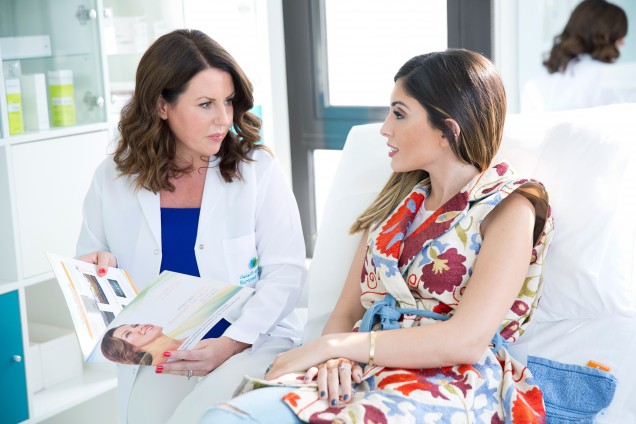The supplements you should take for great skin
For this week’s column, I spoke to my skin go to and skin expert, Rebecca Treston at Euromed on her favorite skin supplements. I must admit, I’ve dabbled with quite a few and never tend to stick to one because I never know what actually works on giving you great skin. Rebecca Tresto shared her favorites:
To be truly healthy (and ensure your skin is in the best possible condition!) it is crucial to eat a wide variety of fruits and vegetables, high-fiber whole grains and seafood This will ensure you are getting essential vitamins, minerals and nutrients, but if are concerned that your diet isn’t providing you with what you need then supplements can provide a base, an insurance of sorts, in case you don’t get certain nutrients that day.
There are certain supplements that are great to start taking routinely such as omega-3s, extra calcium and vitamin D, because it’s tough to squeeze the right amounts of these into your diet every day. They’re all linked to strong health benefits, ranging from lower risk of cancer and heart disease to better mood.
OMEGA-3s should be sourced from either fish oil or algae (check the label); experts recommend 1,000 mg daily. The key fatty acids in omega- 3s are DHA (docosahexaenoic acid) and EPA (eicosapentaenoic acid). DHA is the more potent, but older formulas will often have more EPA. You just want to be sure to pick a supplement with a combination of the two—which will be indicated on the label. Some companies will also add a little bit of vitamin E (it’s often on the label as tocopherol), since it can help prevent omega-3s from becoming rancid. Omega-3s support a healthy skin inflammatory response which is greatly a positive aspect for clearer skin. These are just one reason, among many, why we love Omega-3 and the wonderful benefits it has on our skin. Fatty acids can act as natural moisturizers that revitalize dry skin from the inside out.
Calcium is crucial for strong bones— especially for women, who are five times more likely than men to develop bone-weakening osteoporosis. According to the USDA, pre-menopausal women under 50 need about 1,000 mg a day. Most doctors recommend at least some supplementation, since a glass of milk only provides about 300 mg, and we also lose a lot in other ways – dark-colored sodas, alcohol, acidic foods, meats and coffee all deplete our stores of calcium.
Vitamin D may help stave off a multitude of health problems such as cancer, depression and heart disease. Though foods like fatty fish, liver and eggs do contain a small amount, it’s almost impossible to get all your D from food. Our bodies make it naturally when exposed to sunlight, but thanks to weather variability and sun protection to lower skin cancer risk, that may not be happening as often as it shouldIf you do supplement, look for D3, which is the variation best absorbed by the body.
For vegetarians, you may need to supplement your Vitamin B12 and Iron levels as these nutrients are mostly found in meat. Taking a multi should ensure that your B12 levels stay where they should be. But depending on how much you exercise and how heavy your periods are (frequent, strenuous exercise and losing a lot of blood monthly can deplete iron stores) you may need more iron than what’s in a multi. In my opinion, I prefer taking plant-based vitamin which is made by grinding up whole foods— ranging from broccoli to goji berries— and pulverizing them into pills and powders. These vitamins don’t work any better than others, but one possible advantage of this type of pill is its potential extra antioxidant content. Berries, cocoa, green tea and curcumin are believed to be extra–strong sources, so if you’re interested in trying one, consider looking for products with one or more of these.
Remember, taking a vitamin on an empty stomach (especially if it contains iron) can cause nausea, so be sure to coat your stomach by eating and drinking water with your supplements. You can also try to find smaller pills with fewer additives, as fillers can also cause nausea or an upset stomach. If you’re still having issues, consider switching to chewable pills or powders you can mix with water. All are just as effective as a hard pill but may be less irritating.




